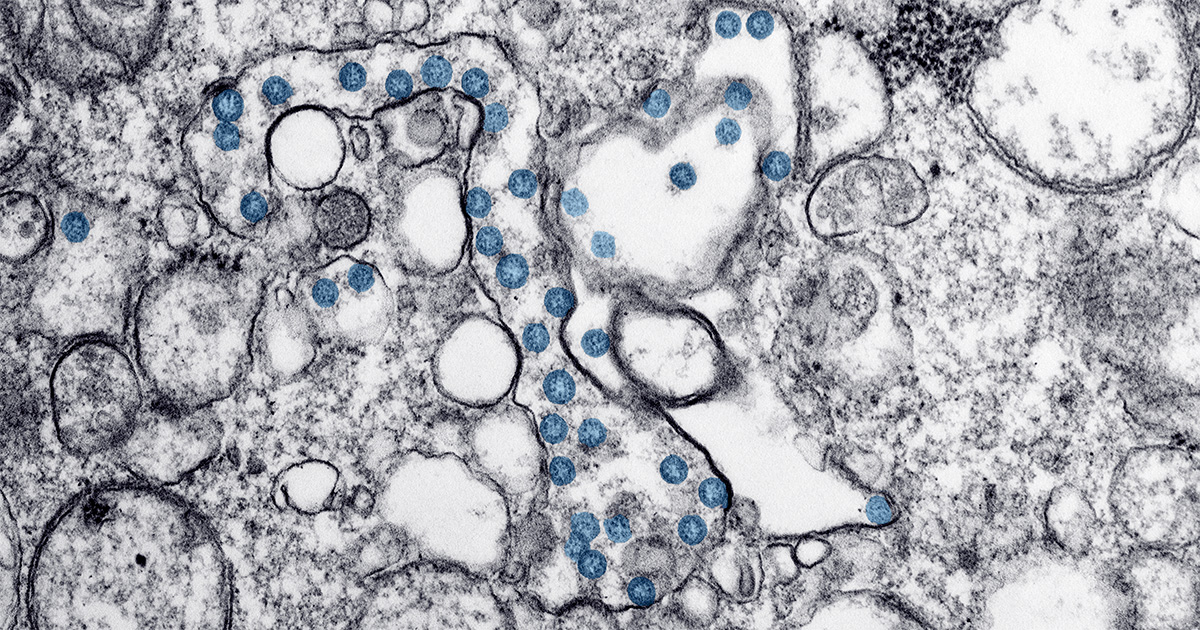I'm a doctor at Nebraska Medicine. Here's what I'm telling my family about COVID-19.

This is an email from Nebraska Medicine critical care anesthesiologist Dan Johnson, MD, to his friends and family about the seriousness of COVID-19. It is shared with permission from Dr. Johnson.
Dear Family,
The COVID-19 pandemic will be a challenge to the USA unlike any we have experienced in our lifetime. For the last several weeks, I have been involved in multiple meetings each day where I get to hear the thoughts of experts in the field of pandemics, specifically about this pandemic, and what we need to do.
If anyone hears from family or friends who think this is “no big deal,” or that the USA’s response has been excessive, please know that they are very wrong. I’m sure you have all read about the many reasons that this is NOT “just like flu.” The numbers of infected, worldwide and in the USA, are extreme underestimates (because many infected have not been tested). The best metric to use, right now, is talking with hospital workers in the hotbeds, and asking them what their situation is.
I have been in communication with a friend who is a critical care physician from the Lombardy region of Italy. The health care workers there are living in a nightmare, having to decide who lives and who dies from lack of oxygen because their health care system is overwhelmed.
In the USA, we have three pathways for COVID-19:
- The country views this challenge like WWI and WWII, and almost everyone does the right things, and we will be harmed but okay.
- Many people do the right things, and many don’t, and we will have the same struggles that Italy is enduring.
- People blow this disease off as no big deal, and our health care system (and life as we know it) will be crippled.
You have all probably seen the concept of “flatten the curve.” If we fail to flatten the curve, and we fail to eliminate the portion of yellow above that line, there will be dire consequences:
- More people, including some of our friends and family, will die.
- Health care workers like me, Rachel, and several of you are at higher risk of dying.
- All health care workers will have to witness the needless deaths of patients who could have survived.
In the SARS-1 outbreak, critical care doctors and nurses in Asia and Canada acquired life-long PTSD from watching patients gasp for air and die because they did not have enough ventilators. SARS-1 was nothing compared to COVID-19. If we do not flatten the curve, Rachel, Bridget, and I will have to witness many of these types of deaths.
In the absence of a vaccine or an anti-viral in the immediate future, our best chance to avoid overwhelming our hospitals is non-pharmaceutical interventions. The two best ways to do that are (1) social distancing, and (2) excellent hygiene.
Please check out these simulations from the Washington Post, and share this article.
The best ways for you to achieve social distancing are pretty simple:
- You and your kids should stay home. This includes not going to church, not going to the gym, not going anywhere.
- Do not travel for enjoyment until this is done. Do not travel for work unless your work truly requires it.
- Avoid groups of people. Not just crowds, groups. Just be around your immediate family. I think kids should just play with siblings at this point – no play dates, etc.
- When you must leave your home (to get groceries, to go to work), maintain a distance of six feet from people. REALLY stay away from people with a cough or who look sick.
- When you do get groceries, etc., buy twice as much as you normally do so that you can go to the store half as often. Use hand sanitizer immediately after your transaction, and immediately after you unload the groceries.
I’m not saying people should not go to work. Just don’t leave the house for anything unnecessary, and if you can work from home, do it.
Everyone on this email, besides Mom and Dad, are at low risk for severe disease if/when they contract COVID-19. While this is great, that is not the main point. When young, well people fail to do social distancing and hygiene, they pick up the virus and transmit it to older people who are at higher risk for critical illness or death. So everyone needs to stay home. Even young people.
Tell every person over 60, and every person with significant medical conditions, to avoid being around people. Please do not have your kids visit their grandparents if you can avoid it. FaceTime them.
Our nation is the strongest one in the world. We have been through other extreme challenges and succeeded many times before. We WILL return to normal life. Please take these measures now to flatten the curve, so that we can avoid catastrophe.
Love,
Dan



